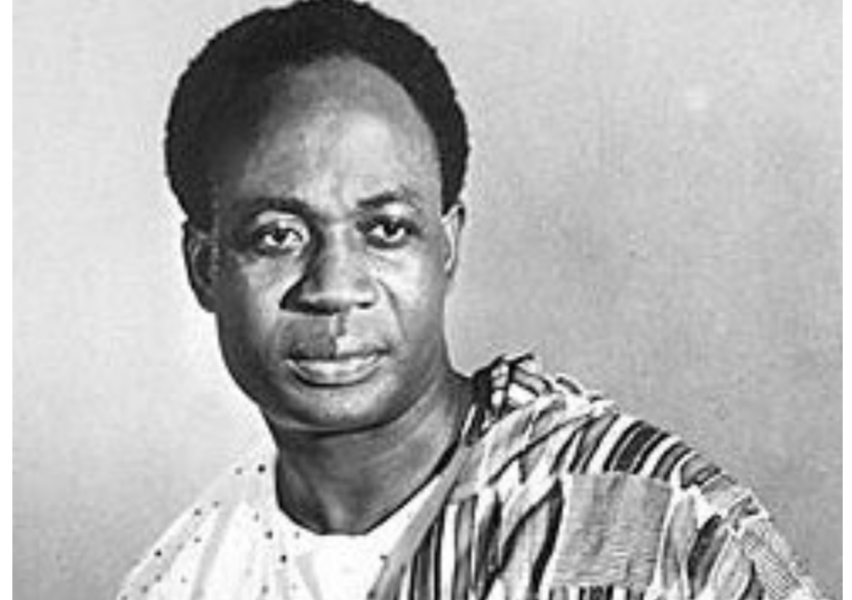Ghana’s President Kwame Nkrumah was a strong proponent of Africa’s Industrialization
Photo: Wikimedia Commons.
[Letter from New York]
From Adam Smith’s publication in 1776 of the Wealth of Nations to the adoption of the 2030 Agenda for Sustainable Development by the United Nations in 2015, development or economic transformation and social advancement means, or has come to mean, manufacturing Industrialization.
The initial stages of industrial processing such as separating cotton seed from lint, removing husks from coffee beans, cleaning hides and skins including by removing fats and unwanted parts, bottling alcohol manufactured in other countries or assembling products like tractors and vehicles from imported finished parts does not constitute manufacturing industrialization.
Manufacturing industrialization must transform raw material into finished manufactured products like cotton into a shirt or a cow hide into shoes with much value added.
Adam Smith supported manufacturing over agriculture as the main driver of development (Wayne Ellwood 1998). Smith also supported the protection of young or infant industries (Michael Goodwin 2012). Others who supported infant industry protection from unfair competition from mature enterprises included Friedrich List and John Stuart Mill (Robert A. Isaak 2005).
Protection was to be treated as temporary until the protected industry was efficient to compete in domestic and external markets. The opening up must therefore be done gradually, not abruptly and all at once.
There is also a general consensus that import substitution in the early stages to meet domestic needs and then diversifying into export markets is part of the Industrialization process.
African governments preceded by colonial administrations understood the importance of manufacturing industrialization in creating jobs and transforming colonial economic structures. The United Nations has also endorsed Industrialization by creating a specialized agency: the United Nations Industrial Development Organization (UNIDO).
The UN Economic Commission for Africa (ECA) was mandated to promote Industrialization in Africa (Roland Oliver and Michael Crowder 1981).
The first United Nations Conference on Trade and Development (UNCTAD) that was held in Geneva in 1964 and the New International Economic Order (NIEO) adopted at the United Nations Special Session of the General Assembly in New York in 1974 gave pride of place to industrialization of developing country economies.
In 1975 UNIDO adopted the Lima Declaration setting the target for developing countries to secure a 25 percent share of world manufacturing production by 2000. At that time the share was 10 percent (A. P. Thirlwall 2003).
African leaders reiterated their full support of industrialization in the Lagos Plan of Action of 1980, Africa’s Priority Program for Economic Recovery of 1985, AU’s Agenda 2063: The Africa We Want of 2014 and the Common African Position (CAP) on the Post-2015 Development Agenda of 2014.
Reports from various sources including UNIDO show that industrialization of African economies through import substitution was progressing reasonably well before the 1970s stagflation and subsequent global economic recession, external debt accumulation and structural adjustment programs.
More specifically, UNIDO reported that “African countries had been increasingly gaining comparative advantage in labor-intensive manufacturing…”
However, the opening up of African economies under structural adjustment programs “prematurely exposed African ‘infant’ industries to global competition against much more mature industries ” forcing African countries to “abandon existing industrial capacity” (Jomo Kwame Sundaram 2013). This explains in large part rapid de-industrialization in Africa south of the Sahara.
The good news is that African governnents have renewed their determination to reinvigorate the industrialization process. The Africa Group at the United Nations in New York played a commendable role in pushing and obtaining goal 9: “Build resilient, infrastructure, promote inclusive and sustainable Industrialization and foster innovation” in the 2030 Agenda for Sustainable Development.
However, this is not yet the time for celebration. The harder part is yet to come. That is the implementation phase that produces the desired results.
Stay safe.
Eric Kashambuzi
Teacher of civic education
New York, USA
August 2020







